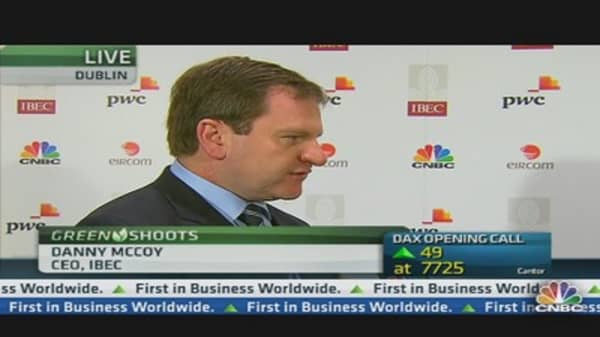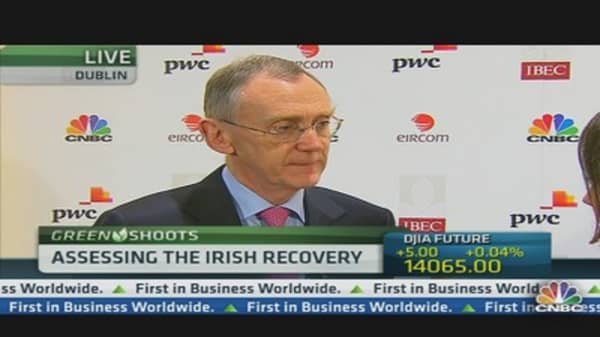However, Gary McGann, CEO at Smurfit Kappa warned the country could not be expected to continue unlimited austerity and measures were needed to get employment back up.
"In this case austerity has had to have its place in the recovery but people can't deal with austerity forever. They can't really work hard, dig deep with no vision or hope or expectation of bright lights in the future. People need to be given some sense of vision of what's going to be the payback for this," McGann said.
(Read more: European Austerity Pushing Children into Poverty: Study)
He added that stimulus was now needed and it was crucial that the "wheels of commerce be oiled."
"We need to get employment going and without that people have no spending power. It's about money in people's pockets. People don't have money to spend," he said.
He added that there was a dichotomy in Ireland. While exporters were doing quite well, Ireland still faced significant problems at home.
"The challenge is to get the real domestic economy, SMEs, to get them back active and taking on employment again. They have to re-employ to get the economy moving and that's what will get the optimism moving further," McGann said.
Ireland's financial crisis was triggered by a major property collapse, with home prices falling around 57 percent between 2007 and 2012.
But Myles Lee, CEO of CRH, Ireland's largest company and the second-largest producer of building materials globally, told CNBC that lessons had been learnt. "When we see rapid growth and rapid price growth it is not something that can continue unchecked. We have to be more cautious and conservative in our approach when economies grow strongly in the future," he said.
However, he said reports of further dramatic falls in house prices were "alarmist." "Property prices do seem to be finding their bottom, particularly in the bigger population areas. So much depends on the external environment in the euro zone, there's some nervousness on the back of the Italian elections but hopefully things stabilize from here," he added.




